Estimated reading time 10 minutes, 55 seconds.
Ask Joe Randell, and he’ll tell you he’s been in the aviation industry for a long time. Formerly with Air Canada and Eastern Provincial Airways, he was part of the team that founded regional carrier Air Nova in 1986.
Throughout the eventful ’80s and turbulent ’90s, leading up to Air Canada’s blockbuster purchase of Canadian Airlines in 2000, Randell’s was a well-known name in the regional airline sector. He eventually became president of Jazz Airlines, an amalgamation of five regional Canadian carriers. Although its launch was delayed by the terrorist attacks of Sept. 11, 2001, the service formally took off in 2002. It later became an independent public entity in 2006, Jazz Air Income Fund.

Yes, it’s fair to say that Randell has seen a great deal in this cyclical business of aviation. You don’t make it 40 years in this industry without the ability to pivot — a familiar word these days.
His experience makes him particularly well suited to lead Dartmouth, N.S.-based Chorus Aviation Inc. through the challenges presented by COVID-19. While he hasn’t faced operating through a global pandemic before, Randell — as the company’s president and CEO — is plowing ahead, working with his experienced management team to expand and diversify Chorus’s regional aviation empire.
Specialized services
When Air Canada sold its entire interest in the regional operation, Jazz Air Income Fund became a public corporation under the umbrella of Chorus Aviation Inc. Jazz is Chorus’s largest division and the one most visible to the flying public — albeit under a different name.
Under a Capacity Purchase Agreement (CPA) with Air Canada that was recently renewed to 2035, Jazz flies under the banner of Air Canada Express and serves regional destinations from hubs across the country and the United States.

With crews wearing identical uniforms to those of their mainline compatriots, Jazz not only performs regional flights for Air Canada, but delivers airport operations services, too. Its fleet of 115 aircraft contracted to Air Canada includes Bombardier CRJ 900s and 200s, and De Havilland Canada Dash 8-400s and -300s.
The company also operates Jazz Charters, an on-demand division offering flight services to corporations, industry and sports teams. A maintenance, repair and overhaul (MRO) division, Jazz Technical Services, provides a range of services for the Jazz fleet as well as for other airlines operating Bombardier, De Havilland and Embraer regional aircraft. Finally, Jazz Airline Services is equipped to assist airlines around the world with establishing and operating their own flight operations and ground handling departments.
In 2015, Chorus executed a strategic expansion by purchasing Voyageur Aviation Corp. in North Bay, Ont.
“Voyageur is a contracted flying business, most of it outside Canada,” explained Randell. “Clients are the United Nations, governments, etc. Voyageur offers very specialized services to a broad range of customers, including aircraft modifications. It is a Design Approval Organization (DAO) and not your typical mass MRO — it focuses on specialty jobs such as cockpit redesigns, special mission installations and long-range fuel tanks.”
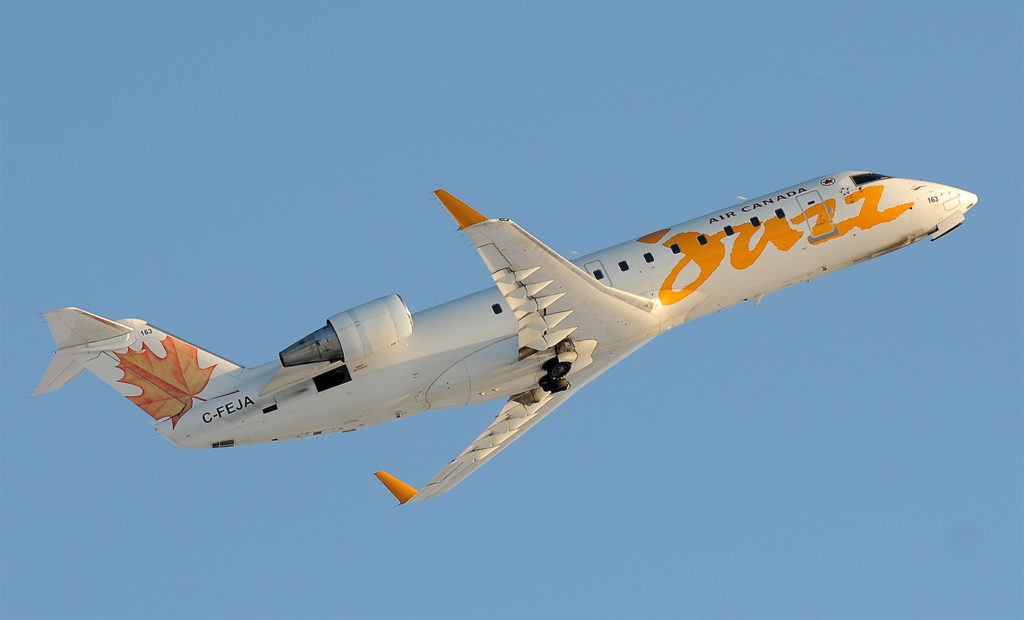
Voyageur operates approximately 20 aircraft for charters, ACMI (aircraft, crew, maintenance and insurance) leases and medevacs. It also provides component repairs and operates a parts sales operation in North Bay. That operation dismantles end-of-life aircraft, recycling all useful parts and pieces.
Three years ago, Chorus launched its third division. Chorus Aviation Capital (CAC) is based in Dublin, Ireland, and has leased more than 60 aircraft — from Airbus A220 airliners to regional jets and turboprops — to 14 international operators in 13 countries on five continents.
“There were a lot of people who said there was no way you could operate an airline and lease aircraft at the same time,” Randell told Skies. “We found the opposite. Our customers like talking to people who know the business.”
It’s a discovery that has led Chorus to consider a broader approach in the future, whereby maintenance support could be provided to a start-up, for example.
Completing the lifecycle
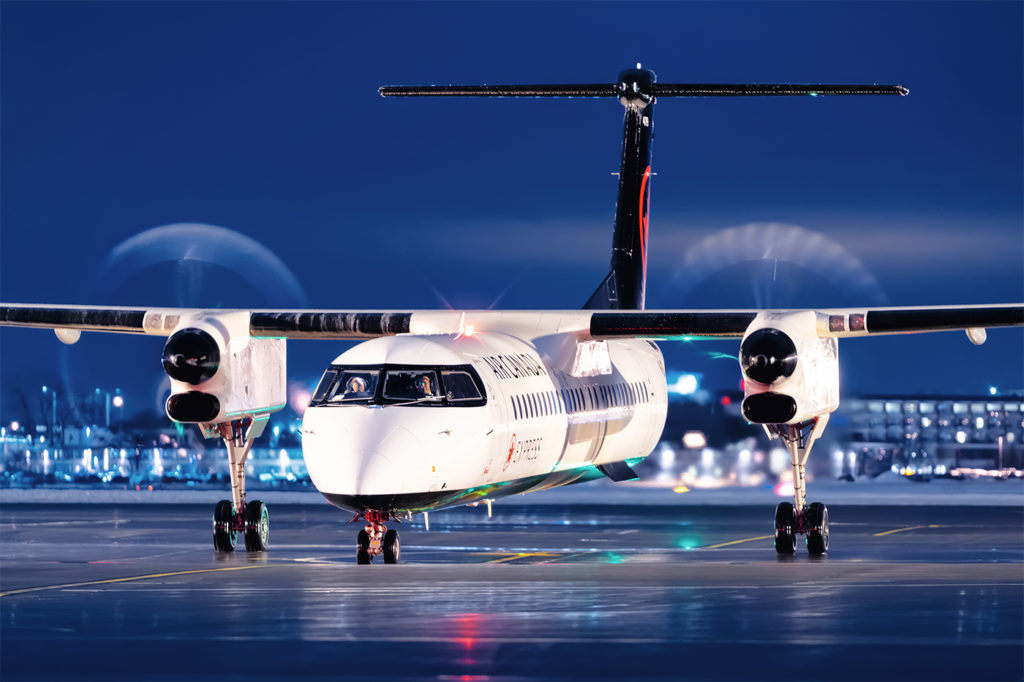
Chorus’s website proclaims that it delivers regional aviation to the world. Indeed, it ships parts and leases aircraft to operators far and wide — not to mention leveraging its decades of regional aviation operational expertise.
“We’re based in Canada, but you can see we have a global reach,” said Randell. “We know the regional business. We take an aircraft, brand new from the factory, and operate it with the airline. We look at how we can add value to the life of that aircraft, until the day it’s parted out and the fuselage is sent out to make aluminum beer cans. We convert older Dash 8s to freighters, for example. We have knowledge and expertise encompassing the whole lifecycle of an aircraft.”
The Chorus team believes regional aviation will be one of the first segments to recover from the debilitating effects of the COVID-19 pandemic.
“We are seeing slow recovery in the regional passenger sector now; a gradual increase in traffic with load factors picking up,” confirmed Colin Copp, chief operating officer of Chorus Aviation and president of Chorus Aviation Services. “Air Canada is beginning to add routes back as people feel they can travel safely.”
Copp has worked in regional aviation since 1989. He believes Chorus has a unique offering and is working hard to elevate its profile.
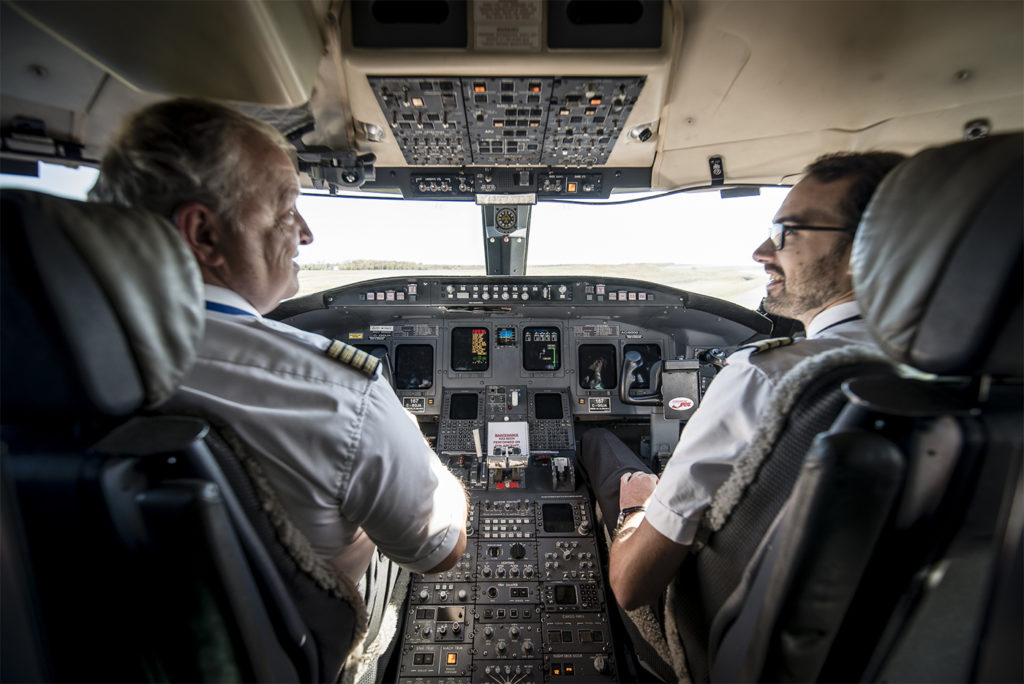
“The value proposition here is our ability to do things within the regional airline and aircraft platforms,” he explained. “We have unlimited capability in those areas. It’s a funny industry in that there are different aspects of the lifecycle performed by different competitors, but none really take it from aircraft acquisition all the way through to retirement and part out. There’s nobody that does the full lifecycle, that has the intermediate capabilities in the middle of the lifecycle, that we do.”
The North Bay operation excels at completing specialty jobs, such as modifying a platform for an ISR (intelligence, surveillance and reconnaissance) or maritime patrol mission.
“Newer planes tend to be on the airline side; as they get older, they move into the secondary market,” said Copp. “The Dash 8 is a great example: special mission, ISR, combi configurations — there is a whole host of secondary markets.”
Pre-COVID, Chorus employed about 5,200 people. Copp said that number has been reduced temporarily, although Voyageur is currently in hiring mode. He credited the company’s ability to differentiate itself to its many long-term employees, whose “deep depth of experience and knowledge has been an enabler for us.”
Expand and diversify
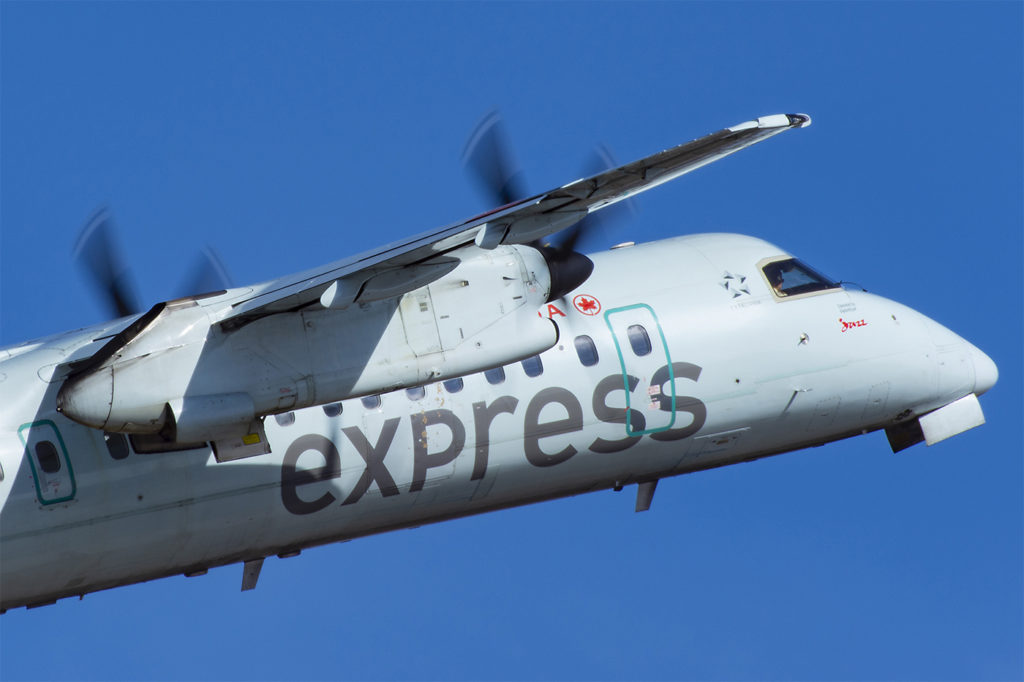
of the first segments to recover from the debilitating effects of the COVID-19 pandemic. Eric Dumigan Photo
With the Air Canada CPA in effect until 2035, Chorus is now turning its attention to broadening its customer base. Over the last five years, since it purchased Voyageur and opened the CAC leasing arm, it has been actively investigating new opportunities.
“I think we’re looking at the types of services we provide,” said Randell. “We’re moving in a more aggressive manner; diversifying our customer base is a big priority.”
He believes leasing is now a more attractive option for airlines, as they examine their liquidity needs during the post-COVID period.
“I think the regional business is on the forefront of the recovery, in my view, as domestic markets come back first. Regional business has lower trip costs and I think it shows our vision was the right one.”
Copp said Chorus is focusing on certain areas of interest. Among them is regional cargo, where he said the company has the capability to both operate and maintain aircraft.
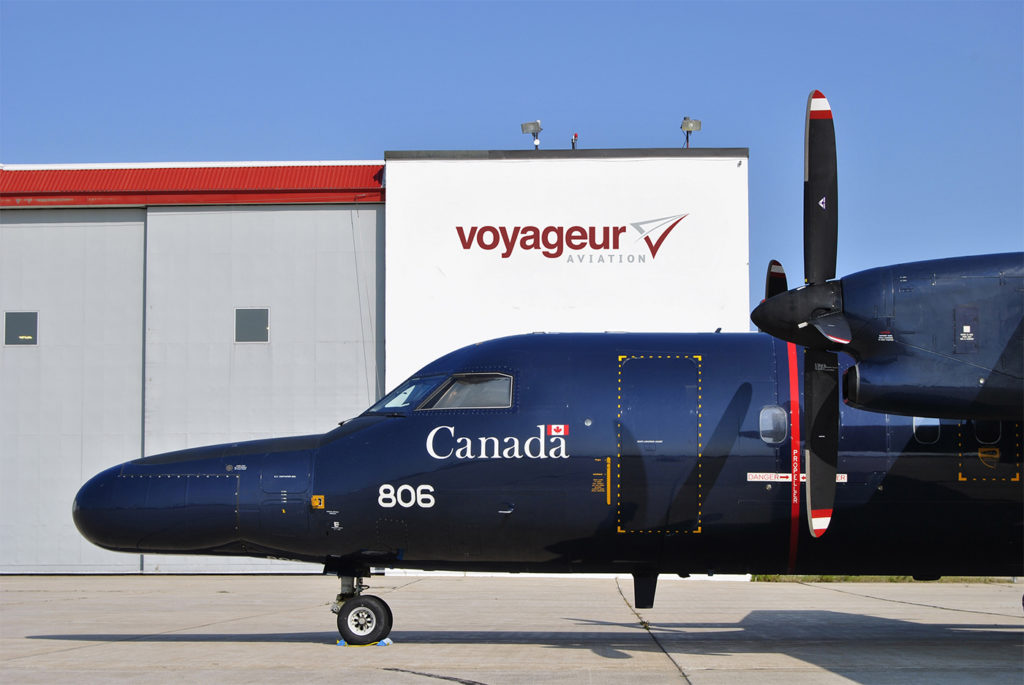
“We are looking at doing more package freighters at Voyageur, whether we operate, sell or lease them. In other cases, we wet lease to the customer for a period of time and eventually transition to a dry lease. As long as we’re staying within the same platform of aircraft, we can offer the customer what they need.”
In addition, Voyageur brings special mission capability to the table. Copp said he sees opportunities to lease and manage special mission aircraft to militaries and government agencies. “Being tied into the UN through Voyageur, we have a lot of exposure and experience in that area.”
Chorus is also looking at the aerial firefighting sector as a possible growth opportunity. Copp said it’s a similar type of business to a CPA, where a company typically operates under contract to a government. “We’ve been doing a lot of work in that area; looking at repurposing regional aircraft for unique flying applications.”
Finally, Copp said there are certain military opportunities that might make sense for the company. “We have extensive experience and knowledge with flight training, for example, because we do all our own training at Jazz.”
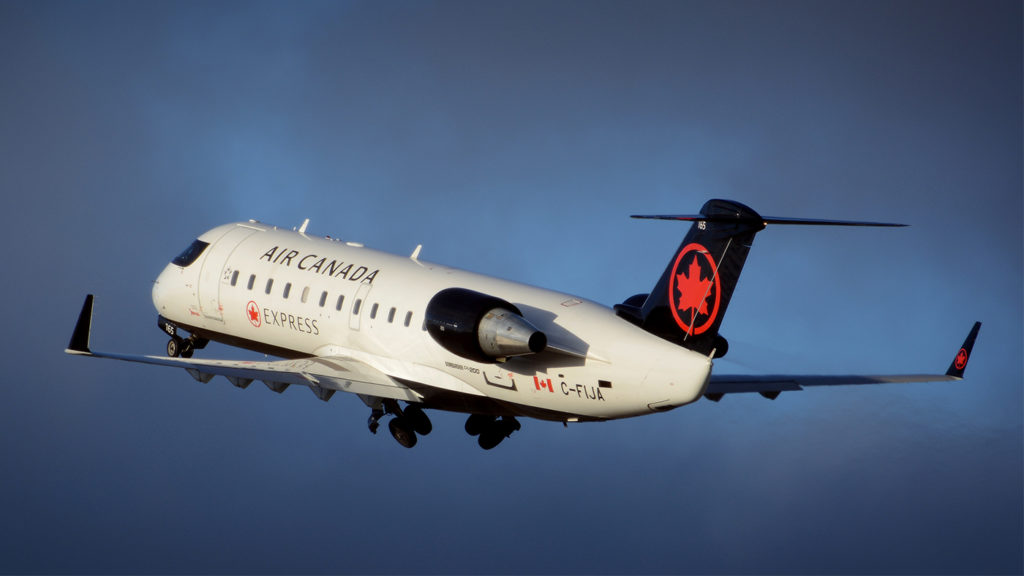
Traditionally, Chorus has taken a conservative approach to expansion, avoiding high-risk projects. Copp said the same plan will serve the company well in the future.
“As we go in, we’ll do it gradually and slowly. Our ability to execute is all part of that. That’s been the No. 1 thing for us. When we win a contract, we’ve been absolutely committed to ensuring we’re successful at it.”
Pursuing progress
As Chorus looks beyond the pandemic, it takes comfort from the Jazz CPA with Air Canada. Even with a commitment to the existing fleet and labour agreements in place to 2035, Copp said Chorus is open to “solutions that make sense for both sides” and is optimistic that the need for regional aircraft will remain strong. “The CRJ 900 can be used to substitute on routes that are normally flown by mainline narrow-body aircraft when loads are light, for example.”
He also mentioned that the company’s positive relationship with frontline employees and their unions is something that makes him proud.
“Having that is so key to having the flexibility to do things and do them successfully. In some ways, that is another differentiator for Jazz. It’s key for us.”
As they look at the future of Canadian aviation, both Randell and Copp are cautiously optimistic.
“One good thing about Canada is the Canadian regulatory environment is well liked globally,” noted Copp. “Canadian operators are well-accepted and the safety standards are very high. That in my mind is a great opportunity for us, as we look at evolving the business globally and leveraging that as much we can, moving forward.”
For his part, Randell believes that the aviation industry is critical to Canada given the size of the nation’s geography.
“I think the Canadian government needs to take a more holistic approach to the aviation and aerospace industry and its effect on the economy, to see it as an enabler for growth while ensuring Canadians have accessibility to their communities and good-paying jobs in our nation,” he said. “Our industry has a lot of expertise and is well respected internationally.
“It’s up to us in the aviation and aerospace industry to leverage that,” he concluded. “Here at Chorus, we have an enormous amount of experience and capabilities, and we’re looking to raise our profile in the industry. We have some good momentum, and we’re looking to keep moving forward.”
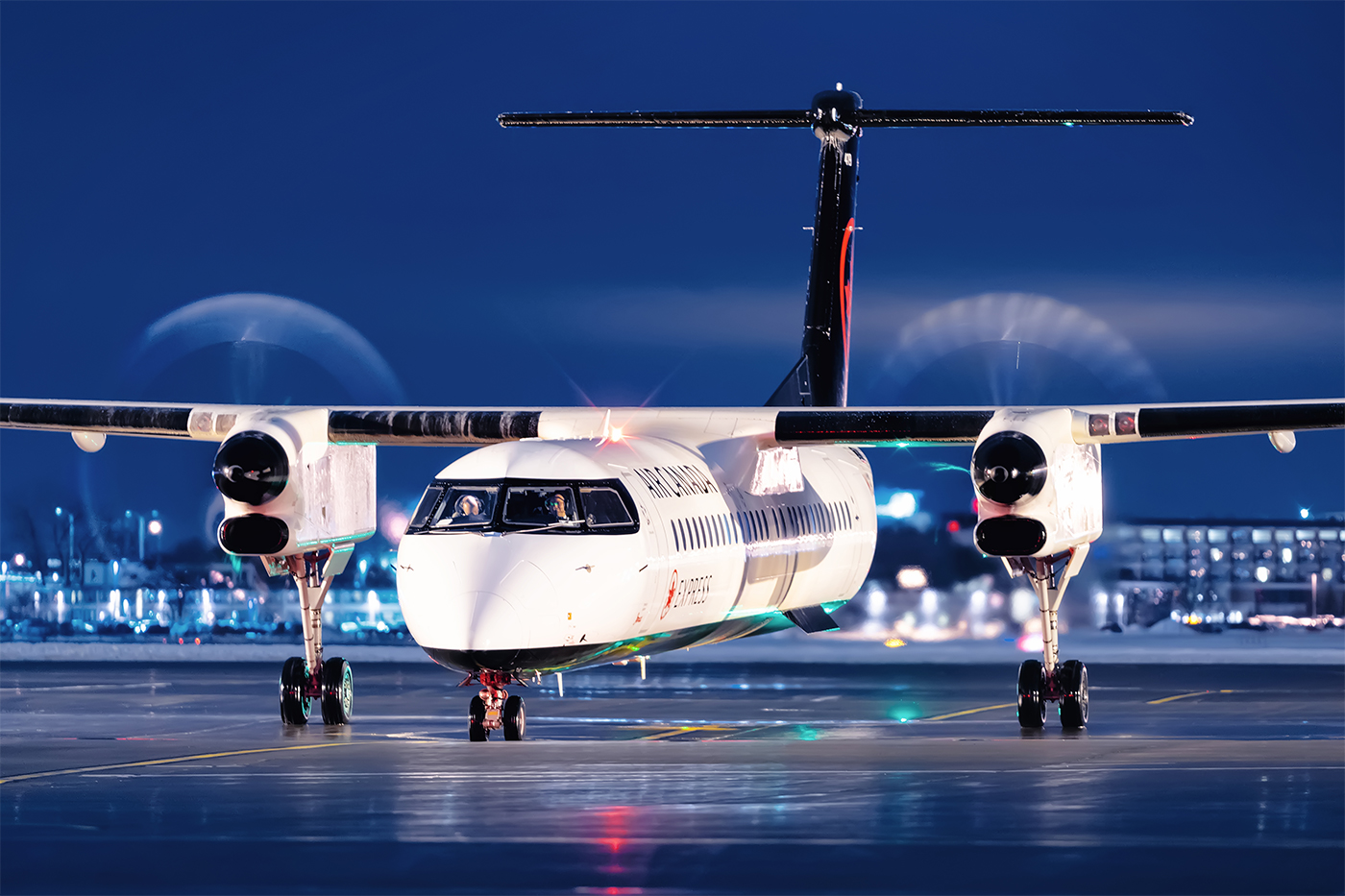

This article makes you proud to be a Canadian. I wish our government had the foresight to protect our aviation expertise and infrastructure. Canadian aviation and its support industries employ well over a million high paying jobs. They are obviously being ignored in this COVID era. I sincerely hope we survive to prosper in the post pandemic world.
As a 13 year employee (Pilot of all types over that time)I can confirm all of the Leaderships comments!
As a laid off employee from Chorus I have to say this statement is true:
He also mentioned that the company’s positive relationship with frontline employees and their unions is something that makes him proud.
The management team is fantastic, light years ahead of Air Canada and how they treat their staff with Covid really exemplifying that.